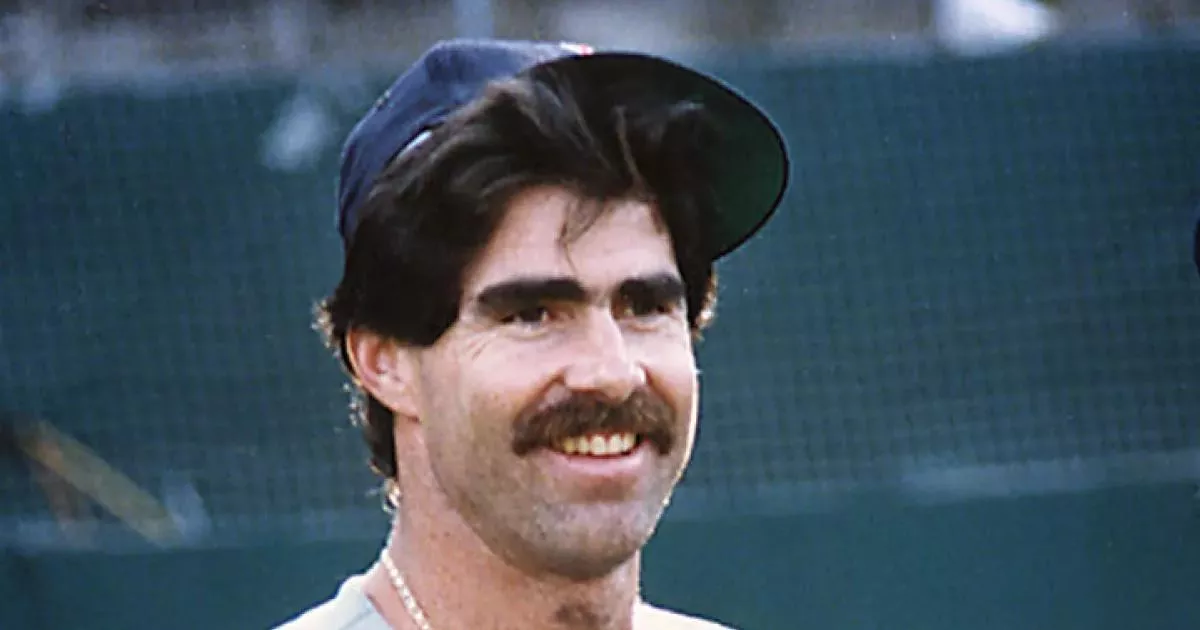Bill Buckner was an American Major League Baseball player from 1969 to 1990. He was known for playing with the Chicago Cubs, Los Angeles Dodgers and Boston Red Sox. Originally playing as an outfielder, he won the National League batting title in 1980 with a .324 batting average. He primarily played first base and set a major league record for first basemen with 159 assists in 1982, a record that he surpassed in 1983 with 161. He was traded to the Red Sox in 1984.
December 14, 1949: Birth of Bill Buckner
On December 14, 1949, Bill Buckner was born in Vallejo, California.
1966: Death of Bill Buckner's Father
Bill Buckner experienced the loss of his father, Leonard Buckner, in 1966 during his teenage years.
1967: Impressive High School Baseball Performance
As a high school baseball player, Buckner excelled, boasting a .667 batting average in 1967.
1968: Professional Debut with the Ogden Dodgers
At 18, Buckner began his professional baseball journey with the Ogden Dodgers, the Rookie Pioneer league, hitting .344 with 4 home runs and 44 RBI in 64 games.
1968: Graduation from Napa High School
Buckner graduated from Napa High School in 1968. He was a standout athlete in both baseball and football, earning All-State and All-America honors in football.
1968: Continued Baseball Success and Football Recognition
Buckner's success continued in 1968 with a .529 batting average in baseball. His football talents were also recognized with impressive records in reception yards and receptions at Napa High School.
1968: Drafted by the Dodgers and Early College Experience
In 1968, the Los Angeles Dodgers selected Buckner in the second round of the MLB draft. He briefly attended Los Angeles Valley College, USC, and Arizona State University.
1969: Rapid Ascent Through the Dodgers' Farm System
Buckner swiftly climbed the ranks within the Dodgers' farm system, showcasing his abilities with impressive performances at various levels, including the Arizona Instructional League, Class AA Albuquerque Dodgers, and Class AAA Spokane Indians.
1969: Major League Debut
In 1969, at the age of 19, Bill Buckner made his MLB debut with the Los Angeles Dodgers.
April 1970: First Major League Hit and Season with a Broken Jaw
In April 1970, Buckner achieved his first MLB hit while playing for the Dodgers. Remarkably, he played a significant portion of the season with a broken jaw, demonstrating his resilience and determination.
1971: Earning a Starting Position and First Career Home Run
Buckner secured a starting spot with the Dodgers as their right fielder in 1971 and hit his first career home run on April 6th.
1973: Playing First Base
Buckner spent some time at first base for the Dodgers, starting 87 games at the position in 1973.
April 8, 1974: Witnessing Hank Aaron's Historic Home Run
Buckner played a memorable role in baseball history on April 8, 1974, as he attempted to catch Hank Aaron's record-breaking 715th home run while playing left field.
1974: Buckner Mentioned in TV Series "Emergency!"
Bill Buckner received a brief mention in a 1974 episode of the TV series "Emergency!," highlighting his rising fame as a baseball player.
1974: Dodgers' Pennant Win and World Series Appearance
Buckner played a key role in the Dodgers' 1974 pennant win, batting .314. He also participated in his first World Series, which the Dodgers lost to the Oakland Athletics.
1977: Trade to the Chicago Cubs and Position Change
Before the 1977 season, Buckner was traded to the Chicago Cubs. Due to a previous ankle injury, he was moved to first base, a position he would hold for the rest of his career.
1977: Dodgers' World Series Appearances
The Dodgers, with players acquired in the Buckner trade, went on to the World Series in 1977 and 1978.
1978: Dodgers' World Series Appearances
The Dodgers, with players acquired in the Buckner trade, went on to the World Series in 1977 and 1978.
May 17, 1979: Memorable Performance in a High-Scoring Game
On May 17, 1979, Buckner had a standout performance in a high-scoring game against the Philadelphia Phillies, going 4-for-7 with a grand slam and a career-high seven RBI.
1980: National League Batting Title
Bill Buckner won the National League batting title in 1980 with an impressive .324 batting average.
1980: NL Batting Title and Strikeout Record
Bill Buckner won the National League batting title with an impressive .324 average in 1980. He also set a notable record by striking out only 18 times throughout the season, averaging one strikeout every 32 at-bats.
1981: League-Leading Doubles and All-Star Appearance
In 1981, a season shortened by a players' strike, Buckner continued to excel, batting .311 and tying for the Major League lead in doubles with 35. His performance earned him a spot as the sole representative for the Cubs in the All-Star Game.
1982: Career-High Hits, RBIs, and Assists Record
Buckner achieved several career milestones in 1982. He surpassed the .300 batting average mark for the fourth time while playing for Chicago, set a personal best with 201 hits, and drove in over 100 runs for the first time in his career with a total of 105 RBIs. Additionally, he set a new Major League record for assists by a first baseman with 159, breaking Mickey Vernon's 1949 record.
1982: Setting a Major League Record for Assists
In 1982, Buckner set a then-Major League record for first basemen with 159 assists.
1983: Breaking his Own Assist Record and Leading the NL in Doubles
Buckner broke his own assist record in 1983 with 161, while also leading the National League in doubles for the second time.
1983: Leading the NL in Doubles Again
Buckner led the National League in doubles for the second time in three seasons in 1983, hitting 38 two-baggers. However, he also experienced a dip in his batting average, which fell to .280, its lowest point in eight years.
1984: Trade to the Boston Red Sox
Following disagreements with the Cubs' management, Buckner was traded to the Boston Red Sox in the middle of the 1984 season.
1984: First Five-Hit Game
On September 21, 1984, shortly after joining the Boston Red Sox, Buckner had his first-ever five-hit game in a decisive 8-0 win against the Baltimore Orioles.
1985: Career Highs and Assists Record
Buckner had a career year in 1985, playing in all 162 games for the Red Sox. He achieved personal bests with a .299 batting average, 16 home runs, 110 RBIs, 201 hits, and 46 doubles. His ability to make contact was evident as he struck out only 36 times in 719 plate appearances, the lowest in the American League that year. Further showcasing his defensive prowess, he extended his own Major League record for assists in a single season with an impressive 184. This record remained unbroken for nearly 25 years.
1985: Shattering his Assist Record
During the 1985 season, Buckner played in all 162 games and set a new record with 184 assists, a record that still stands in the American League today.
1985: American League Record for Assists
His 1985 record of 184 assists remains unbroken in the American League.
June 5, 1986: 1,000th Career RBI
Bill Buckner reached a significant career milestone on June 5, 1986, when he recorded his 1,000th RBI. The achievement came during a game against the Milwaukee Brewers, where he grounded out but still managed to drive in a run.
1986: Buckner's Error Featured in "The Areas of My Expertise"
Author John Hodgman, in his book "The Areas of My Expertise," includes a fictional account of a premonition about Bill Buckner's error in Game 6 of the 1986 World Series, highlighting the lasting impact of the event on popular culture.
1986: Buckner's Error in 1986 World Series
Bill Buckner committed a costly error in the 1986 World Series while playing for the Boston Red Sox, which became a defining moment in his career and a frequently referenced event in baseball history.
1986: World Series Error and Backlash
During the 1986 World Series, Buckner committed a critical error in Game 6, allowing the New York Mets to score the winning run. This moment became a defining one in his career, unfairly overshadowing his many accomplishments. The error led to intense scrutiny and criticism from fans, some of whom resorted to death threats and relentless heckling.
1986: The 1986 World Series Error
In the 1986 World Series, Buckner's error in the tenth inning of Game 6 against the New York Mets became one of the most memorable plays in baseball history, contributing to the Red Sox's loss and fueling years of fan frustration.
1986: Zakim Bridge Nicknamed "Bill Buckner Bridge"
The Leonard P. Zakim Bunker Hill Memorial Bridge in Boston became colloquially known as the "Bill Buckner Bridge" after its completion. The nickname, referencing Buckner's error in the 1986 World Series, humorously points to the traffic passing between the bridge's "legs."
1987: Signing with the California Angels
After being released by the Red Sox, Buckner signed with the California Angels in 1987.
1987: Release from the Red Sox
Despite achieving the milestone of his 2,500th career hit earlier in the season, Buckner's performance was overshadowed by the previous year's World Series error. Facing continued criticism and pressure, he was released by the Red Sox in July 1987 after playing in 75 games.
May 9, 1988: Release from the Angels
On May 9, 1988, just before a series of games that would have seen him play against his former teams, the New York Yankees and Boston Red Sox, Buckner was let go by the California Angels.
April 25, 1990: Last Home Run and Only Inside-the-Park Home Run
On April 25, 1990, at Fenway Park, Buckner hit his last career home run against pitcher Kirk McCaskill. Notably, this home run was an inside-the-park home run, the only one of his career. Despite being known for his lack of speed, Buckner, then 40 years old, managed to circle the bases when Angels outfielder Claudell Washington collided with Fenway's right-field wall and fell into the stands while attempting to make the catch.
1990: Return to the Red Sox and Standing Ovation
In a heartwarming moment during the Red Sox's home opener on April 9, 1990, Buckner received a standing ovation from the crowd, signifying forgiveness and appreciation for his contributions to the team. This occurred as he returned to the Red Sox as a free agent, marking a poignant moment in his career.
1992: Charlie Sheen Purchases "Buckner Ball"
Charlie Sheen purchased the "Buckner Ball" at an auction in 1992 for $93,000, demonstrating the enduring fascination with this piece of baseball history.
1995: Buckner Appears in Nike Commercial with Michael Jordan
Bill Buckner appeared alongside Michael Jordan, Stan Musial, Willie Mays, and Ken Griffey Jr. in a Nike commercial in 1995, showcasing his place in baseball history. The commercial, directed by Spike Lee, humorously referenced Buckner's 1986 World Series error.
1997: Buckner Inducted into Napa High School Hall of Fame
In 1997, Bill Buckner was honored for his high school athletic achievements by being inducted into the Napa High School Hall of Fame.
2004: Red Sox Fans Embrace Buckner After World Series Victory
After the Red Sox won the World Series in 2004, breaking their long championship drought, fans showed renewed appreciation for Buckner, moving past the 1986 incident.
2004: Red Sox Win 2004 World Series
The Boston Red Sox ended their 86-year championship drought by winning the 2004 World Series, a historic moment for the team and its fans. This victory also led to a shift in the perception of Bill Buckner's 1986 error, with fans viewing it more sympathetically.
2006: Buckner Ventures into Real Estate and Car Dealership
After retiring from baseball, Bill Buckner moved his family to Idaho in 2006 and invested in real estate, even naming one subdivision "Fenway Park." He also became a minority owner of Bill Buckner Motors, a car dealership in Emmett.
2007: Red Sox Win 2007 World Series
The Boston Red Sox won the 2007 World Series, their second championship in four seasons, further solidifying their status as a dominant team in the early 21st century.
April 8, 2008: Buckner Throws First Pitch at Red Sox Home Opener
On April 8, 2008, Bill Buckner threw out the first pitch at the Boston Red Sox home opener to his former teammate, Dwight Evans. This event was particularly significant as it marked Buckner's reconciliation with the Red Sox fans after the 1986 World Series incident.
October 23, 2008: Greenspan Referred to as "Bill Buckner" During Testimony
During a House hearing on the 2008 economic crisis on October 23, 2008, Representative John Yarmuth made a comparison between former Federal Reserve Chairman Alan Greenspan and Bill Buckner, drawing a parallel to Buckner's infamous error.
2008: Buckner Inducted into Baseball Reliquary's Shrine of the Eternals
Bill Buckner received an unusual honor in 2008 when he was inducted into the Baseball Reliquary's Shrine of the Eternals, a unique hall of fame that celebrates the game's memorable characters.
2008: Closure of Bill Buckner Motors
Bill Buckner's car dealership, Bill Buckner Motors in Emmett, Idaho, closed down in 2008 after two years in business.
2009: Assists Record Broken
St. Louis Cardinals' first baseman Albert Pujols broke Buckner's record of 184 assists in a single season, set in 1985, by recording 185 assists.
2010: Buckner Inducted into CIF Sac-Joaquin Section Hall of Fame
Bill Buckner was inducted into the CIF Sac-Joaquin Section Hall of Fame in 2010, recognizing his significant contributions to high school athletics in the Sac-Joaquin region.
January 4, 2011: Buckner Becomes Manager of Brockton Rox
Bill Buckner was appointed as the manager of the Brockton Rox in the Can-Am League on January 4, 2011. He led the team to a winning record in his only season.
May 3, 2012: Swirsky Sells "Buckner Ball"
Seth Swirsky sold the infamous "Buckner Ball" from the 1986 World Series for $418,250 through Heritage Auctions on May 3, 2012, marking a significant moment in sports memorabilia history.
2012: Buckner Serves as Hitting Instructor for Boise Hawks
In 2012, Bill Buckner took on the role of hitting instructor for the Boise Hawks, a minor league affiliate of the Chicago Cubs.
March 3, 2014: Buckner Announces Retirement from Baseball
Bill Buckner announced his retirement from baseball on March 3, 2014, after a long and illustrious career as both a player and a coach.
2014: Retirement from Baseball
Buckner retired from baseball in 2014 after coaching several Minor League teams.
2016: Buckner and Wilson Reunite for MLB Network Commercial
In 2016, Bill Buckner and Mookie Wilson, the two central figures in the 1986 World Series' most memorable play, appeared together in an MLB Network commercial. The commercial, titled "Catching Up," commemorated the 30th anniversary of the event.
May 27, 2019: Death of Bill Buckner
Bill Buckner passed away on May 27, 2019.
Mentioned in this timeline

Michael Jordan widely considered one of basketball's greatest players significantly...
California is a U S state on the Pacific Coast...

Albert Pujols nicknamed the Machine is a Dominican-American former MLB...

Los Angeles is the most populous city in California and...
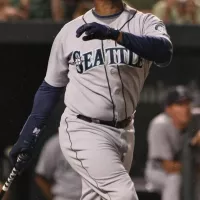
Ken Griffey Jr nicknamed Junior and the Kid is a...
Arizona is a landlocked state in the Southwestern U S...
Trending
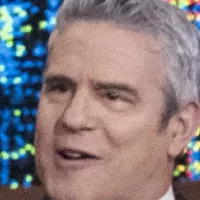
47 seconds ago Lisa Rinna's book reveals bombshells, Andy Cohen expresses thanks despite complex relationship.

1 minute ago Colton Underwood Addresses 'Bachelor' Past and 'Traitors' Drama: Wells Adams Weighs In.
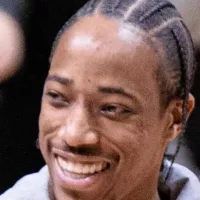
1 minute ago DeMar DeRozan Enters Top 20 All-Time NBA Scorers, Passes Havlicek and Pierce.
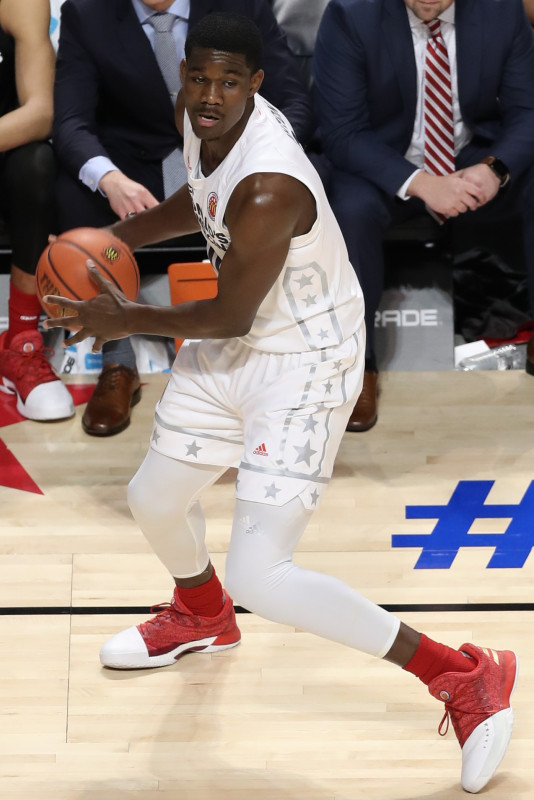
2 minutes ago Deandre Ayton's Role with Lakers: Key to Success or Source of Discontent?
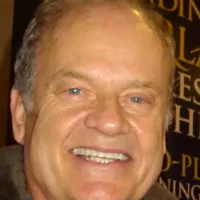
2 minutes ago Kelsey Grammer Terrifies as Cult Leader in 'The Hunting Party' Season 2
2 minutes ago Achiuwa supports Hardaway, Kings defeat Grizzlies, NBA picks for February 23, 2026.
Popular

Jesse Jackson is an American civil rights activist politician and...

Barack Obama the th U S President - was the...

Susan Rice is an American diplomat and public official prominent...

XXXTentacion born Jahseh Dwayne Ricardo Onfroy was a controversial yet...

Michael Joseph Jackson the King of Pop was a highly...

Kashyap Pramod Patel is an American lawyer who became the...
